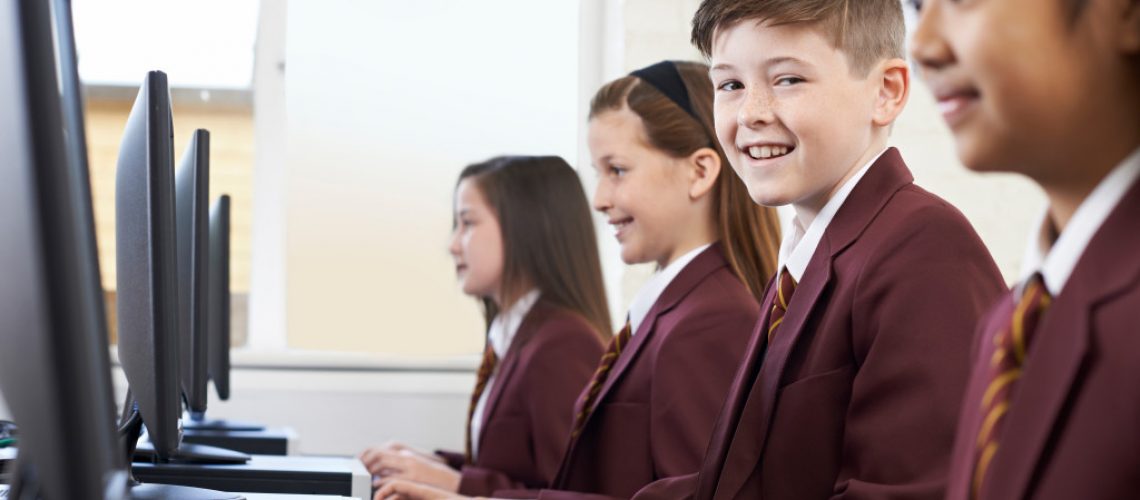It is believed and proven that at 18 weeks of pregnancy, children start hearing sounds from the womb. At first, it is only your heartbeat. But, as the pregnancy progresses, your baby can listen to external sounds as well. At full term, an unborn child can hear sounds equivalent to that of a human being.
As parents, one can engage in activities like reading to develop a bond with the children. Tiny babies love the sounds of their parents and music as well. From around three months, babies start to recognize your expressions. At six months and onward, they start developing an interest in books and also tear a few pages. Eventually, after a year, you will find them flipping through pages. They try to understand what is there inside. Learning and development begin even before a child is born. However, the school gives the environment to nurture young and curious minds.
Here you will learn how school education impacts young minds. But before that, you ought to know about a child education method that is quite popular.
Self-paced Learning Methodology
One of the most renowned children’s education methodologies is the Montessori method. It encourages empathy and also directs children to be self-learners. According to this self-paced learning methodology, a child is treated as an individual. With Montessori education, children learn in different ways. Have you ever entered a classroom for preschoolers that follow this methodology? If you have, you will probably understand what we are talking about.
The teacher acts as a guide. You will find different groups engaged in various activities. The classroom design and daily routine put the children into a self-regulated environment. This method also teaches stronger socio-emotional skills. The technique has been around for almost 100-years and still going strong.
How Schools Help with Different Types of Development in Children
Although we all know that education plays a vital role in the overall development of a child, here, we have established how it helps with different types of development.

Mental Development
The school is the first place where children get a formal environment. It allows them to get exposure to various subjects such as mathematics, English, art, crafts, history, and geography. This helps young minds think. They start developing questions in their minds. Moreover, the school is the first place where a child is exposed to various cultures.
Social Development
Children meet their first set of friends either in preschool or in kindergarten in a high school. Till then, the children were probably learning only from siblings, parents, and grandparents. It stagnates the mind to a huge extent. With schools, children can expand their social skills. They meet other children from the same age group and lead to friendship, participation, and empathy.
You will notice that the friends children make in school remain with them lifelong. It is not the same with college and university friends. They may come and go. It is in schools that children first get out of their shells. Moreover, school friends are less competitive too.
Physical Development
As already discussed, the fetus starts developing after conception. The home is an enclosed place, but the school gives wings to children. In an alien environment, a child can route his sudden bursts of energy to good use. Moreover, they learn proper behavior when exposed to children of the same age group. Furthermore, sports activities at school help children to channelize their energies into something productive.
All-round Development
Till a few years back, the schools followed a rigid curriculum. Children were expected to go to school with huge bags filled with books. And the way teachers taught was very robot-like. However, times have changed. Schools have now tweaked their curriculum and made it more flexible where learning is not only through lectures but also visual images, videos, and first-hand experiences. They have also included imaginative play and learning as a part of the curriculum that paves the way for cognitive development.
Is Home Schooling Effective?
Many people indeed opt for homeschooling. However, it cannot nurture the young child’s mind in the same manner. It is more mechanical if you see it that way. Also, it can widen the attainment gap based on how much you can invest in homeschooling. Moreover, children find parents and relatives around them all the time. Thus, they tend to get into a comfortable zone. Hence, the learning pace is a lot slower than what it would be in the public school. So that acts as a hindrance.
No matter how well coordinated it is, homeschooling cannot give the child the same level of education as a school. Learning in peer groups is always effective. Therefore, you should send your children to school. They will be able to absorb the myriad benefits there.
As outlined in this article, education plays a vital role in a child’s development, especially through public schools. What and how your child learns in the schools almost sums up how they will perform in life after school and college.

